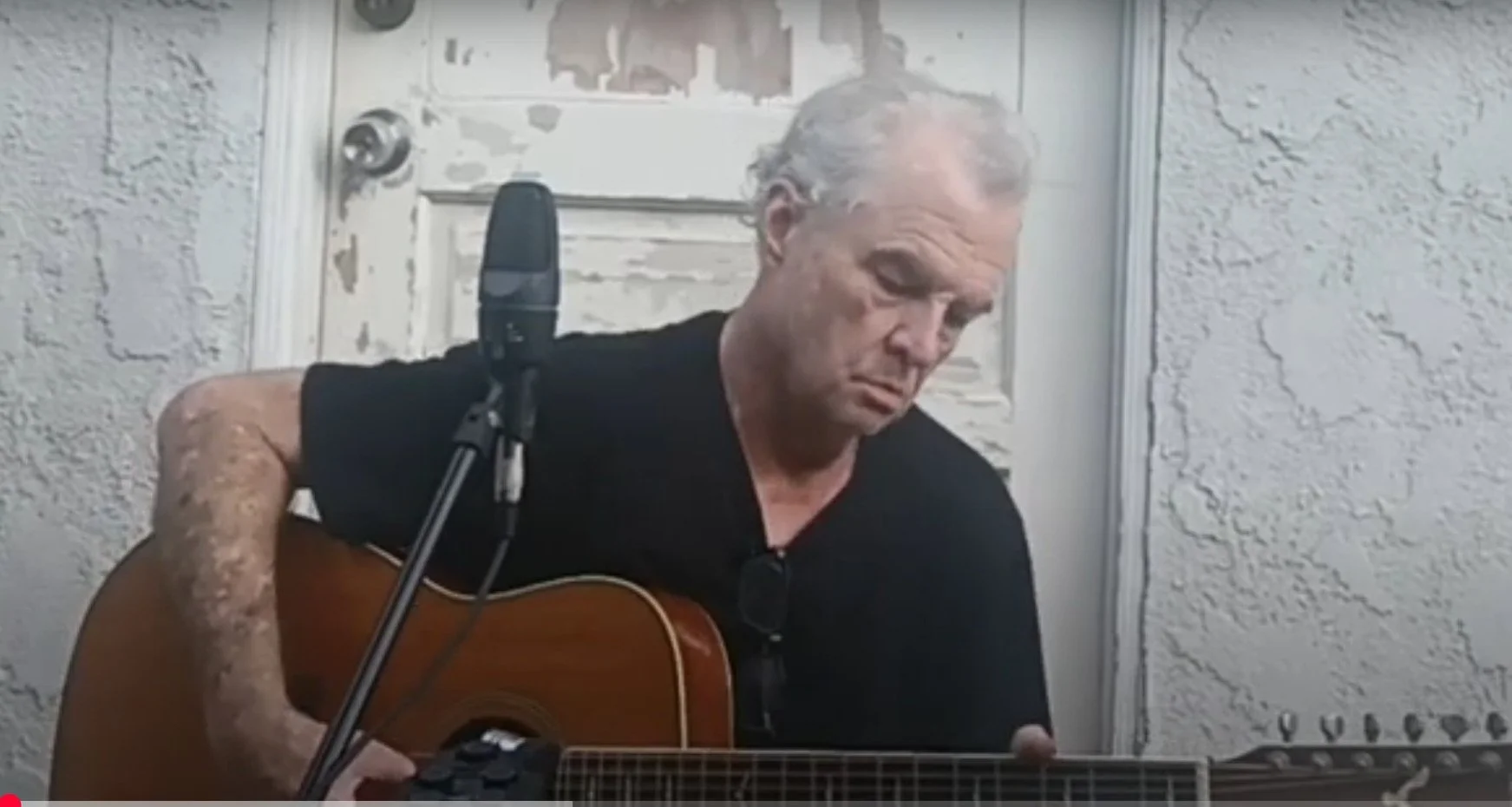Martin Ballard
Martin Ballard is a sixth-generation Kentuckian who grew up two hours north of Nashville, where boys were expected to choose between guitar or basketball. Being near-sighted, asthmatic and bewildered by sports, he chose piano — but at age 10, the first glimpse of his Cousin Danny’s sunburst Sears Silvertone electric guitar and Harmony amp combo sent him down a whole new road.
Drawing comparisons to Richard Thompson—but with a deeper blues undercurrent—Ballard plays mostly in unusual tunings, and has the rare ability to play slide style on the acoustic 12-string. The sound might be described as the place where the Mississippi meets the River Shannon.”
Ballard is also a unique vocalist, with a four octave range and a timbre that can shift from a pillowy croon to Lennonesque growl from one song to the next. He says he was a mediocre singer at best until a meeting with the rockabilly chanteuse Wanda Jackson. Known for her signature growl, the legendarily petite, raven-haired beauty was described by Rolling Stone as "spring-loaded dynamite wrapped in sandpaper.”
“I wrote half her autobiography but the agent fucked up the contract, and Wanda’s manager-husband sold the screen rights to my manuscript, kindly sending me a Bible by way of appreciation for my complete unpaid services.”
The one thing he kept was her gift: over lunch, after he lamented his limited singing ability, “she placed her cool fingers on my throat and said, “Move it to right here, hon.” And just like that, she unlocked his voice, growl and all.
In 1986, after stints as a legislative intern in D.C. and the youngest full-time rock critic at a daily paper in the U.S. at the Boulder (Colorado), Ballard moved to Los Angeles.
Over the next 15 years, his voice—a sharp blend of insight, humor, and weirdness—appeared in hundreds of features across outlets, especially the pre-oligarchic Washington Post and Los Angeles Times, to national magazines ranging from Cosmopolitan, Elle, and Bon Appetit. A deeply human writer, he was one of the last to work entirely in print before the walls fell. He also ghostwrote the NYT Bestseller, Dear Cary: My Life with Cary Grant, by Dyan Cannon.
His journalism is collected in a self-published book, Praise & Blame in 1990s Los Angeles, assembled quietly and almost sheepishly, as a portfolio item. “It was,” he says, “like putting up a display case when the museum’s already been bulldozed.”
And yet it found its way into the hands of old readers and new admirers, who reminded him why he endured the rough ride of freelance journalism in the first place.
But music, always central, took deeper hold. Writing his first song at 14, he’s now written 99 songs and is preparing a “song-a-thon” to perform them all.
Today, Ballard makes art, music, and storytelling under the banner of Blues & Haikus, including work under his alter ego Ragged Bo Kaintock, a slide-playing mystic who shows up on dog portrait t-shirts and the occasional YouTube sermon. His guiding principle remains what Pete Seeger once told him in parting: get people singing together.
Martin Ballard is a sixth-generation Kentuckian whose work lives at the crossroads of folk music, art, and community storytelling. He grew up under the quiet but powerful influence of Wendell Berry, whose writings helped shape his sense of place, responsibility, and resistance.
In his early life, Ballard worked as a legislative intern on Capitol Hill before moving west — first to Boulder, where he became the youngest full-time rock critic at a daily newspaper, then to Los Angeles in 1986. He later ghostwrote a national bestseller, but prefers not to let that overshadow the heart of his work: songwriting, painting, and helping people connect through creative tradition.
He has written 99 songs to date and is preparing a marathon song-a-thon performance. At 19, he opened for folk legend John Hartford — a touchstone moment in a long, winding musical path. He’s also a painter with a raw, expressionistic style, often working under the name Ragged Bo Kaintock.
At the center of it all is a simple mission, passed to him by Pete Seeger himself: get people singing together. Whether through field manuals, porch songs, or painted dogs on t-shirts, Martin Ballard is building something rooted, soulful, and meant to be shared.





